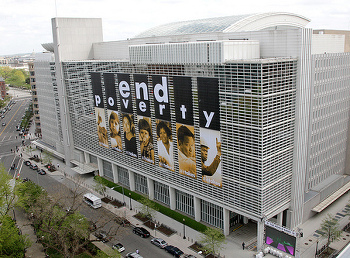The World Bank Group is currently undertaking an evaluation and review of its Sanctions System. That Sanctions System is an integral part of the Bank’s Anti-Corruption policy in that it provides a framework for punishing corrupt contractors, thereby creating a deterrent to corruption. A well-functioning Sanctions System is also important in helping to ensure that the development goals of Bank-financed lending projects are not undercut by fraud or corruption and that World Bank loans produce the greatest possible development impact vis-à-vis the money disbursed.
The Bank has begun a series of consultations with external stakeholders focusing on the performance and implementation of the Sanctions System, as well as the findings and recommendations made by the internal team leading the review process. The review team has produced a diagnostic report evaluating the legal adequacy of the system and its performance and making specific recommendations for reforms. This report has not been made public.
Given the importance of the Sanctions System to effective development and poverty alleviation, it is critical that these consultations are transparent and inclusive and are structured in such a way so that they are most conducive to generating meaningful input from all interested parties. The World Bank has conducted successful and transparent consultations in the past, most recently in the review of its procurement procedures. The Bank has already taken a first step towards a transparent consultation process by launching a dedicated sanctions consultations website that features a summary of its diagnostic report (.pdf) as well as information regarding its plan of action and expected timeline for the review.
While Transparency International and Transparency International-USA will be submitting written recommendations on substantive issues, we have two recommendations with respect to the consultation process:
- The Bank should promptly make available the internal diagnostic report, including all associated data. At the very least, a redacted version of the report with the data should be made available. The summary document prepared by the Bank is useful but does not provide the necessary detail. The findings, discussion, and data contained in the diagnostic report are essential for stakeholders to assess and evaluate whether the review team’s recommendations correspond to current shortcomings and also to provide meaningful feedback.
- All submissions and recommendations by external stakeholders should be published in a timely manner with identifying information omitted if needed to preserve confidentiality. We understand that the Bank will be publishing the transcripts of consultation meetings, for which we applaud the Bank. The prompt publishing of submissions and comments will help ensure a transparent and inclusive consultations process, and will also allow for a richer exchange of ideas.
Transparency International – USA believes that the sanctions consultations are an excellent opportunity for the World Bank Group and interested stakeholders to work together to improve a system that is looked to by many other institutions. We therefore recommend that the Bank take the above steps to create an open and transparent consultations process that will be beneficial to all parties, and will serve as a model for developed and developing countries.
This blog post originally appeared on the The FCPA Blog.
















 Connect with us on Facebook
Connect with us on Facebook Follow us on Twitter
Follow us on Twitter